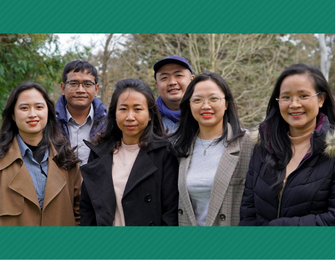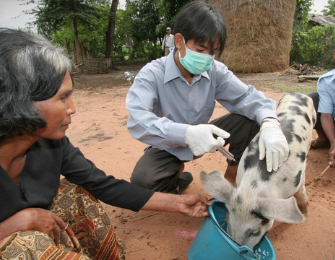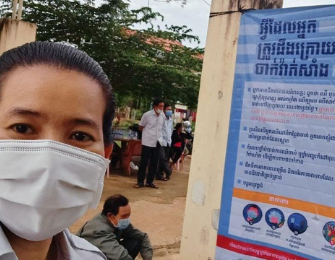A functioning laboratory system capable of producing timely and reliable results is the cornerstone of any country's ability to detect and investigate disease outbreaks.
Public health and veterinary diagnostic laboratories in, Cambodia, Laos and Myanmar will be better able to detect, investigate, coordinate and report on disease outbreaks that could become public health emergencies. Each country’s laboratory workforce will be implementing testing guidelines and quality assurance processes; and local laboratories will be connected to national and regional networks facilitating coordination between human and animal health laboratories.
During a 6 month inception phase for the South East Asia LABoratory Strengthening project (SEALAB), assessments of each country’s human and veterinary diagnostic laboratory capacity informed national plans of action that include; improvements for the national workforce, quality management system, data management and supervision and control of laboratories.
The project will then deliver intensive training packages to selected staff that focuses on laboratory systems and networks and explores options to maximize the use of resources for sustainable improvement.
Consortium partners will work with laboratories to conduct quality assessments and implement improvement activities within national plans of action. Activities will focus on reinforcing laboratory policies and management practices, training staff, improving data management and diagnostics as well as developing testing guidelines for clinicians and veterinarians.
Frequent training and workshops will be provided and will use a ‘train-the-trainer’ approach, ensuring each country will have a sustainable pool of trainers. The project will engage with partner ministries in each country to embed sustainable supervision and control of the laboratory networks.
In response to the pandemic, SEALAB is developing quality control programs for COVID-19 in laboratories in Cambodia, Laos and Myanmar to support testing using dried tube sample types that can be shipped at ambient temperatures.
Australia’s COVID-19 Response
The Australian Government is deeply concerned about the impact of COVID-19 in Myanmar. Australia's existing humanitarian and development programs continue to focus on COVID-19 prevention and mitigation including:
- providing oxygen related equipment;
- building sanitation infrastructure and isolation wards in internally displaced persons camps;
- distributing personal protective equipment (PPE) to affected communities;
- training and community engagement in disease outbreak surveillance and response;
- capacity building in field epidemiology; and
- strengthening laboratory and emergency health operations.
For more information visit Australia’s development assistance to Myanmar.




